Want to be seen here?
Connect your company to the marketplace for free.
Time for a display campaign? Ocast has gathered thousands of solutions in one place so you can get started quickly. Fill in the form and start receiving offers for campaign proposals.
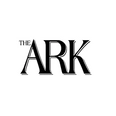
The Ark is an independent, locally owned subscription newspaper that covers the people and activities of the greater Tiburon Peninsula, which includes Tiburon, Belvedere and Strawberry. It has twice b...

Purported to be California's oldest weekly publication, the Mountain Messenger is published weekly in Downieville and is Sierra County's only legal publication. The Mountain Messenger dates to 1853 an...

Founded March 21, 1885, The Madera Tribune has long served the city and county of Madera, and for most of its history has been an independent and locally owned voice of the San Joaquin ValleyThe Trib...
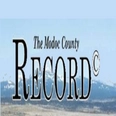
The Modoc County Record is published every Thursday morning for the communities of Alturas, Cedarville, Fort Bidwell, Eagleville, Lake City, Canby, Likely, Adin, Davis Creek, Bieber, Lookout, New Pine...

Atascadero News is the community’s top-ranked news source for Atascadero, since 1916.Breaking news, commentary, comprehensive coverage, and local profiles.Together with Colony Magazine, mailing 20,000...
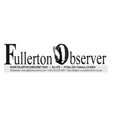
The Fullerton Observer Community Newspaper, founded by Ralph and Natalie Kennedy, Roy and Irene Kobayashi, and other friends in 1978, is staffed by local citizen volunteers who create, publish, and di...

The Hollister Free Lance is an American weekly newspaper published in Hollister, California and distributed in San Benito County, California.The Hollister newspaper market was a competitive one. In 19...

The Galt Herald is a local newspaper based in Galt, Calif. It is printed under the aegis of Herburger Publications, which prints more than 100 publications, including Elk Grove Citizen, River Valley T...
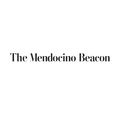
The Mendocino Beacon was founded on October 6, 1877 by W. H. Meacham and William Heeser, an immigrant from Germany who also founded the Fort Bragg Advocate-News and three other local newspapers in Kib...
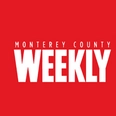
As the largest circulation newspaper in one of the most spectacular counties in America, Monterey County Weekly has long been recognized for its thoughtful, provocative and engaging coverage of news, ...

The Palisadian-Post is the only newspaper solely dedicated to comprehensive news coverage of the Pacific Palisades area, from Santa Monica Canyon to Sunset Mesa, Palisades Highlands and Mandeville Can...
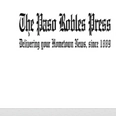
Paso Robles Press is the community’s top-ranked news source for Paso Robles, since 1889.Breaking news, commentary, comprehensive coverage, and local profiles.Together with Paso Robles Magazine, mailin...
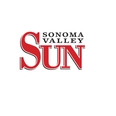
The Sonoma Valley Sun is a bi-weekly newspaper serving the city of Sonoma, California and surrounding Sonoma Valley communities with news reporting, graphics, and photography....
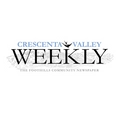
Crescenta Valley Weekly is distributed on Thursdays to the foothill communities .Crescenta Valley Weekly serves the communities of Sunland-Tujunga, La Crescenta, La Cañada, Montrose, Glendale and the ...
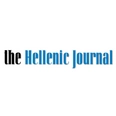
In April 1975, following the invasion of Cyprus, Frank P. Agnost founded The Hellenic Journal, the only newspaper west of the Mississippi published on a regular basis and dedicated to the coverage of ...
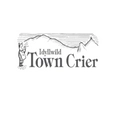
The Idyllwild Town Crier is a local weekly newspaper published out of Idyllwild, California. The Town Crier serves the area of the San Jacinto Mountains in Riverside County, California. The current ow...
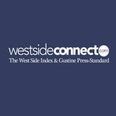
The oldest business in Gustine, in continuous operation, is our community newspaper, The Gustine Press-Standard. Founded as the Gustine Standard, the publication published its first issue on Nov. 4, 1...
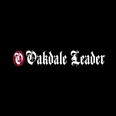
As a local multi-media source for news, and information, The Oakdale Leader prides itself in covering community news stories around Oakdale, and surrounding areas. We cover non-profit events, schools,...
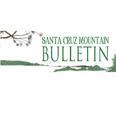
The original source of news for the Santa Cruz Mountains. We are committed to keeping Santa Cruz Mountains connected, we cover everything from breaking news, events, local business, daycation destin...

The Student Life is the oldest college newspaper in Southern California. It serves as the newspaper of record for the Claremont Colleges, a consortium of seven highly selective liberal arts colleges a...
Display advertising, often referred to as banner advertising, involves visual ads placed on various websites, in contrast to text-based search ads that appear in search results on platforms like Google.
While search ads are focused on direct response, display ads aim at building brand awareness through engaging visual content like images or animations. Display advertising also enables retargeting, where ads are redirected to users who have previously visited your website, helping to keep the brand fresh in mind.
With opportunities to measure campaign performance and customize design and target audience, display advertising offers an attractive strategy for brands looking to enhance their online presence and effectively engage their target audiences.
The most effective formats and sizes for display ads vary depending on the platform and target audience, but here are some popular options:
Leaderboard (728x90 px): Positioned at the top of the page, this ad size captures visitors' attention right away.
Medium Rectangle (300x250 px): This size is flexible and can be placed in sidebars or embedded within content.
Large Rectangle (336x280 px): A larger variant of the Medium Rectangle that offers more visible space.
Wide Skyscraper (160x600 px): Often used in sidebars, offering a long, vertical ad space.
Mobile Leaderboard (320x50 px): Optimized for mobile devices and often placed at the top or bottom of the screen.
Consider adhering to industry standards and adapting ad format and size to the specific platform and your target audience. However, the emphasis should be on having well-thought-out content that engages and is relevant to your target audience with clear "Call to Actions" (CTA) to encourage clicks and conversions.
Measuring the effectiveness of your display advertising campaigns is crucial for evaluating the results of your campaign and for fine-tuning future marketing strategies. A first step could be to look over the Click-Through Rate (CTR), which represents the number of clicks your ad receives per view, providing an indication of the ad's engagement level. It is also important to track the conversion rate, which shows how many clicks are converted into desired actions such as sales or leads. Cost Per Conversion is another key indicator that helps you understand the cost-effectiveness of your campaign.
It may also be good to look at the impression rate, that is, how many times the ad has actually reached out and been displayed for brand-building purposes.
One of the major advantages of this type of advertising is its ability for audience targeting, where ads can be directed based on demographics, behavior, and retargeting, enabling a more personalized advertising experience. Moreover, with the use of various analytical tools, it becomes easy to track and measure the campaign's effectiveness by observing data on clicks, conversions, and views, which provides valuable insights.
However, display advertising also has its downsides. Ad blocking is one of the major challenges, where users can choose to block display ads, which in turn reduces the reach and effectiveness of your campaign. Ad fatigue is another downside, where ads that are shown too often can become irritating for the users, leading to decreased engagement and negative brand associations. Despite the ability for audience targeting, audience dilution can be a challenge if precise targeting is not used, which potentially leads to wasted marketing expenses. Additionally, the cost of display advertising can become significant, especially if the campaign is not well optimized to achieve desired results.
The cost of display advertising can vary based on several factors such as website, ad format, and target audience. Besides that, there are different pricing structures one can base on to adjust the cost according to the goal at hand. Below we list different pricing options for display advertising.
CPM (Cost Per Mille or Cost Per Thousand Impressions):
The price for 1000 views of your ad.
Often used for campaigns aimed at increasing brand awareness.
CPC (Cost Per Click):
The price you pay for each click your ad receives.
Used when the goal is to drive traffic to a website or increase interaction.
CPA (Cost Per Acquisition or Cost Per Action):
The price for each specific action or execution, such as a purchase or lead generation, that arises via your ad.
Used when the goal is conversions rather than just views or clicks.
CPL (Cost Per Lead):
The price for each lead generated through your ad.
Used in B2B marketing or for products/services with longer sales cycles.
CPV (Cost Per View):
The price for each viewing of a video ad.
Often used for video-based advertising campaigns.
Each pricing structure suits different goals and campaign types, and choosing the right pricing structure can help maximize the ROI for your display campaign.
Connect your company to the marketplace for free.
No commitments.